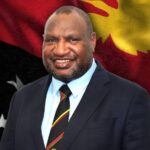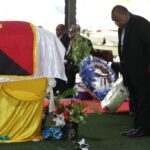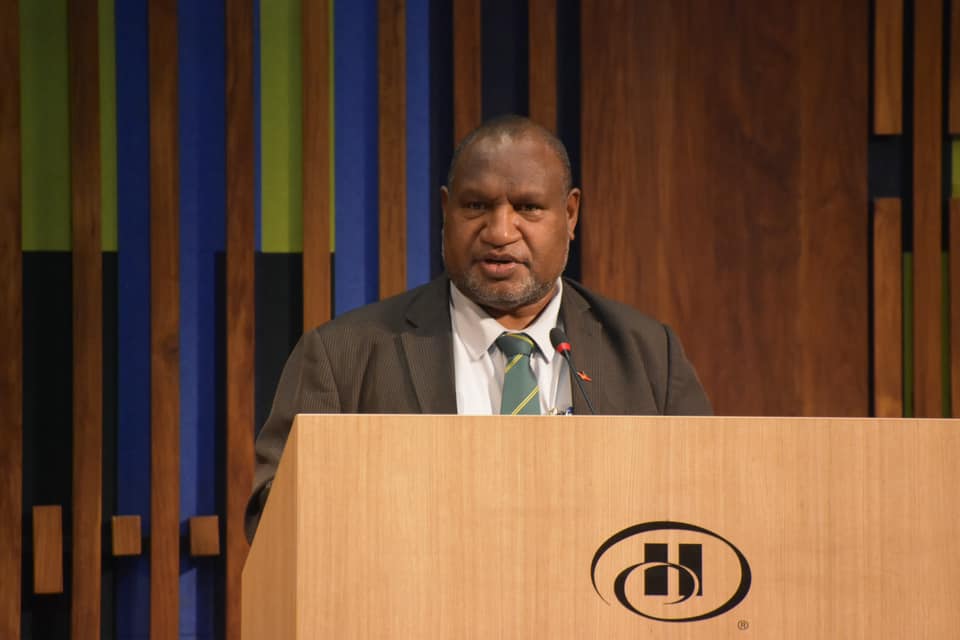Prime Minister Hon. James Marape underscored the Government’s resolute commitment to economic recovery and revitalisation of the Papua New Guinea economy during his address in Parliament on Friday, August 11, 2023. The address marked the presentation of the Government’s comprehensive one-year report card since assuming office on August 9, 2022.
“Our administration remains dedicated to steering economic rehabilitation and reconstruction efforts,” Prime Minister Marape affirmed.
The focal point of this commitment is the 2023 Budget, which sets unprecedented benchmarks in various dimensions:
• With a total allocation of K24.568 billion, the 2023 Budget stands as the largest in Papua New Guinea’s history.
• The budget also anticipates record-high revenue collection at K19.582 billion.
• Despite the significant K4.984 billion deficit, projections indicate a reduction of K1 billion in 2023.
• Fiscal consolidation remains a key priority, coupled with essential reconfiguration of budget allocations.
• A substantial proportion of the K9.795 billion capital budget, specifically K6.615 billion (63 per cent), originates from national government revenue.
• The Public Investment Programme (PIP) has impressively expanded by 224 per cent since 2018.
Prime Minister Marape also highlighted a series of notable accomplishments attained under his administration:
• Enhancing the electoral process to ensure future elections are more robust.
• Allocating additional resources to law and order, including a substantial K401 million (a 28.9 per cent increase) and a 50 per cent increase in funding for the judiciary.
• Increasing funding by K406 million in health and education, with emphasis on boosting support for teachers, nurses, and doctors.
• A K590 million household assistance package introduced to address inflation, including K280 million in tax cuts, K150 million for fuel excise, and K160 million for school projects.
• The initiation of the Budget Repair and Reconstruction Plan spanning the next 13 years, evident in the 2022 Final Budget Outcome, reflecting significant progress through increased revenue and prudent expenditure growth.
• Advancing natural resource monetisation.
• Expanding mechanisms for benefit-sharing, particularly in projects such as the Porgera and Wafi-Golpu mines, and the Papua LNG Project.
• Fostering investor confidence.
• Heightening focus on law and order.
• Strengthening the PNG Defence Force’s capabilities.
• Prioritising education and healthcare.
• Establishing a robust health system aligned with international standards.
• Progressing the 13-Year Economic Plan for Budget Repair and Reconstruction.
• Undertaking a resolute stance against corruption.
• Developing the Community Development Bill.
• Ratifying the 2005 Convention on the Protection and Promotion of the Diversity of Cultural Expressions.
• Enabling policies and content enhancement in education.
• Enhancing the law and justice sector.
• Creating the Juvenile Policy.
• Incorporating 1,680 Village Court Areas and 12,011 Village Court Officials into the ALESCO Payroll System at a cost of K55.738 million.
• Implementing the Connect PNG programme.
• Progressing On-Grid and Off-Grid projects under the PNG Electrification Programme and National Electrification Rollout Programme.
• Unveiling Momote, Vanimo, and Kavieng airports under Civil Aviation Development Investment Programme 1 (CADIP 1), with CADIP 2 negotiations underway.
• Securing funding for the PNG Ports Infrastructure Investment Programme through the Australian Infrastructure Financing Facility for the Pacific (AIFFP).
• Successful completion of Sub-Programme 2 of the State-Owned Enterprises Reforms with the support of the Asian Development Bank.
• Ongoing review of the Mining Safety Act 1977.
• Anticipated reopening of the Porgera Mine pending the Development Forum.
• Signing the Wafi-Golpu Mining Project Framework Agreement.
• Reviewing Mining Memorandums-of-Agreement for Ok Tedi, Simberi, Kainantu, Ramu, and Lihir mines, with Cabinet presentation planned.
• Launching the Fisheries Strategic Plan 2022-2030, alongside a review of the Fisheries Management Act 1998 and the licensing framework.
• Undergoing a review of the Forestry Act 1991, including establishment of the State Marketing Agency in the Forestry Sector as approved by Cabinet.
• Repositioning of Kumul Agriculture Ltd and comprehensive review of all agriculture policies.
• Introduction of agriculture price and freight support facilities.
• Establishment of dedicated ministries for coffee, livestock, and oil palm.
• Formulation of a Sustainable Land Use Policy.
• Vigilant commitment to sustainable environmental protection.
• Passage of the National Trade Bill 2023.
• Intensified efforts to foster bilateral and multilateral relations, evidenced by visits from international leaders in 2023.
• Launch of the Medium-Term Development Plan IV 2023-2027, providing a guiding framework for budgetary and policy discussions up to 2027.
The Prime Minister’s comprehensive overview underscores the Government’s steadfast dedication to addressing multifaceted challenges and achieving holistic progress for Papua New Guinea.





